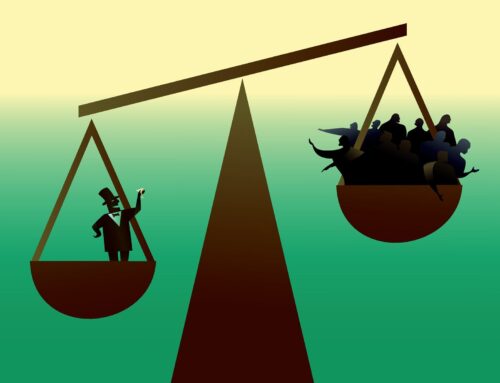Young people are not taught enough about financial literacy. Schools do not teach kids the basics about the value of money, how to save, how to invest, how to spend, and how not to waste money. When the Center of Financial Literacy graded the 50 states and Washington, D.C., on “financial literacy education” in high schools, only five states earned an A, while 27 states received grades of C, D, or F. The 2017 National Report Card on State Efforts to Improve Financial Literacy further shows how states are doing in this regard.
Starting the Conversation
Parents are not doing much better than schools; 69% of parents report they are reluctant to discuss financial matters with their children, and only 23% talk regularly with them about financial matters, according to T. Rowe Price’s 10th Annual Parents, Kids & Money Survey. As a result, young people often do not understand the basics about banking, debit and credit cards, mortgages, payday lending, investment and insurance products, rent-to-own products, credit reports, and credit scores. Furthermore, many recent graduates do not know how to manage their earnings once they find a job, how to make investment choices about retirement savings plans, or how to handle the receipt of large sums from an inheritance or gift. Nor do they understand the importance of starting early to save for retirement. Young adults need solid financial knowledge to be able to deal with these and other situations wisely.
ABCs of Finances
The following is a list of financial topics that young adults who are getting ready to enter the working world should be familiar with.
Budgeting.
Young people need to understand how to calculate their fixed expenses each month (e.g., rent, car insurance, student loan payments) and how to keep track of discretionary spending (e.g., concerts, music downloads). They must recognize the importance of including savings in their monthly budget.
Financial accounts.
Basic checking accounts from banks and credit unions are the underpinnings of financial life, allowing paychecks to be deposited (directly from the employer, through mobile banking, or in person), bills to be paid (by check or automatic account debits), and cash to be obtained from ATMs. While the use of paper checks is waning, it is still important to know how to write a check and balance a checkbook. Besides a checking account, other financial accounts come into play. These include bank savings accounts, which can help individuals maintain minimum balances needed to avoid fees at banks and brokerage companies.
Debt and credit.
The concept of debt and repayment may be superficially understood by young adults who borrow to go to college or buy a car, but it is all too easy to obtain a credit card and run up a balance that becomes difficult to manage. Debt can easily accrue and become overwhelming, leading to financial distress.
It is essential to have access to credit throughout one’s lifetime, for example, to buy a home or start a business. Whether a person can obtain a loan at a favorable interest rate depends in large part on that person’s credit score. This score is figured based on access to borrowing (e.g., credit lines on existing credit cards), loan repayment history, and other factors. It is critical to convey the importance of maintaining good credit by managing debt carefully and monitoring credit ratings to protect one’s identity.
Savings.
The concept of savings is elusive to many people, who unfortunately find themselves without funds to meet emergencies or the ability to have a financially secure retirement. Setting aside money is necessary to get through the ups and downs of life and the economy. The starting point for savings is having a basic emergency fund to cover expenses for three to six months (or more) if a job is lost and investment income is unavailable or insufficient. It is also helpful to have goals to which savings can be targeted, such as for a down payment on a home, starting a family, and retirement. Setting short-term and long-term goals helps motivate saving.
Taxes.
Taxes, in general, may be an unfamiliar topic to many young adults. Appreciating how income can be protected from current taxation is an important concept. Toward this goal, it is helpful to understand tax deferrals, such as salary deferrals in 401(k) plans and, typically, interest on U.S. savings bonds. In addition, it is helpful to seek tax-free fringe benefits that may be available through a job (e.g., health coverage), as opposed to paying for such benefits with after-tax dollars.
Time value of money.
This concept describes how money available now is worth more than the same sum in the future because of its earning capacity. This circles back to budgeting and saving; not buying a coffee at Starbucks today makes $4.75 available for other things, such as savings. If a person makes this choice 10 times a month over the course of a year and puts the $570 into a savings account that earns 3%, the account will have more than $6,700 in 10 years (assuming annual compounding and without regard to tax on interest). Recognizing the power of the time value of money can mean real savings over many years.
Insurance.
Insurance is an expense that cannot be ignored. Basic insurance needs, such as health insurance, car insurance, and property insurance (e.g., renter’s insurance) are likely the first products encountered, but depending on the young adult’s financial and job situation, a host of other products may come into play, including life insurance and disability insurance.
Selecting financial products.
Whether saving through a pretax retirement account, such as a 401(k) or individual retirement account, or in after-tax accounts, young adults are faced with an array of investment options: stocks, bonds, mutual fund shares, annuities, real estate investment trusts, and more. It is vital to know how each of these options works and its place in a savings plan.
Charitable giving.
Beyond expenses and savings, giving to charity is a key part of a monthly budget for many people. It is helpful to know how to distinguish between legitimate organizations and scams.
Worker status.
Typically, when students graduate, they enter the full-time workforce; however, today an increasing number of individuals work in the “gig” or “sharing” economy, on a full-time or part-time basis. It is important to understand the distinction between being an employee (i.e., withholding for income, Social Security, and Medicare taxes, as well as fringe benefits) versus being an independent contractor (i.e., paying estimated income, Social Security, and Medicare taxes, as well funding one’s own benefits).
Getting Help
While young adults may gain sufficient knowledge to handle money themselves, they may also need professional guidance on some matters. For example, if they receive a large inheritance, they may require additional knowledge about how to proceed. Some information can be obtained for free on the Internet, although it isn’t always reliable. It is therefore important to know who to approach for help and what to expect.
Attorneys.
These professionals can provide advice about signing contracts, leases, and other legal agreements.
CPAs.
Accountants can help file tax returns or provide advice when making financial decisions.
Financial advisors.
Financial planners and other financial advisors can offer guidance on investment matters and long-term goals.
Stockbrokers.
Brokerage firms and mutual funds also offer advice on investments. The AICPA offers the 360 Degrees of Financial Literacy website (https://www.360financialliteracy.org/), which addresses financial literacy for each stage of life, including advice for students and employees.
A Well-Rounded Education
Parents typically teach children how to ride a bike, to be kind to others, and not to touch a hot stove. Parents should also teach children about money so they can handle it when they’re grown and on their own. Having a solid understanding about financial matters promotes true independence.




